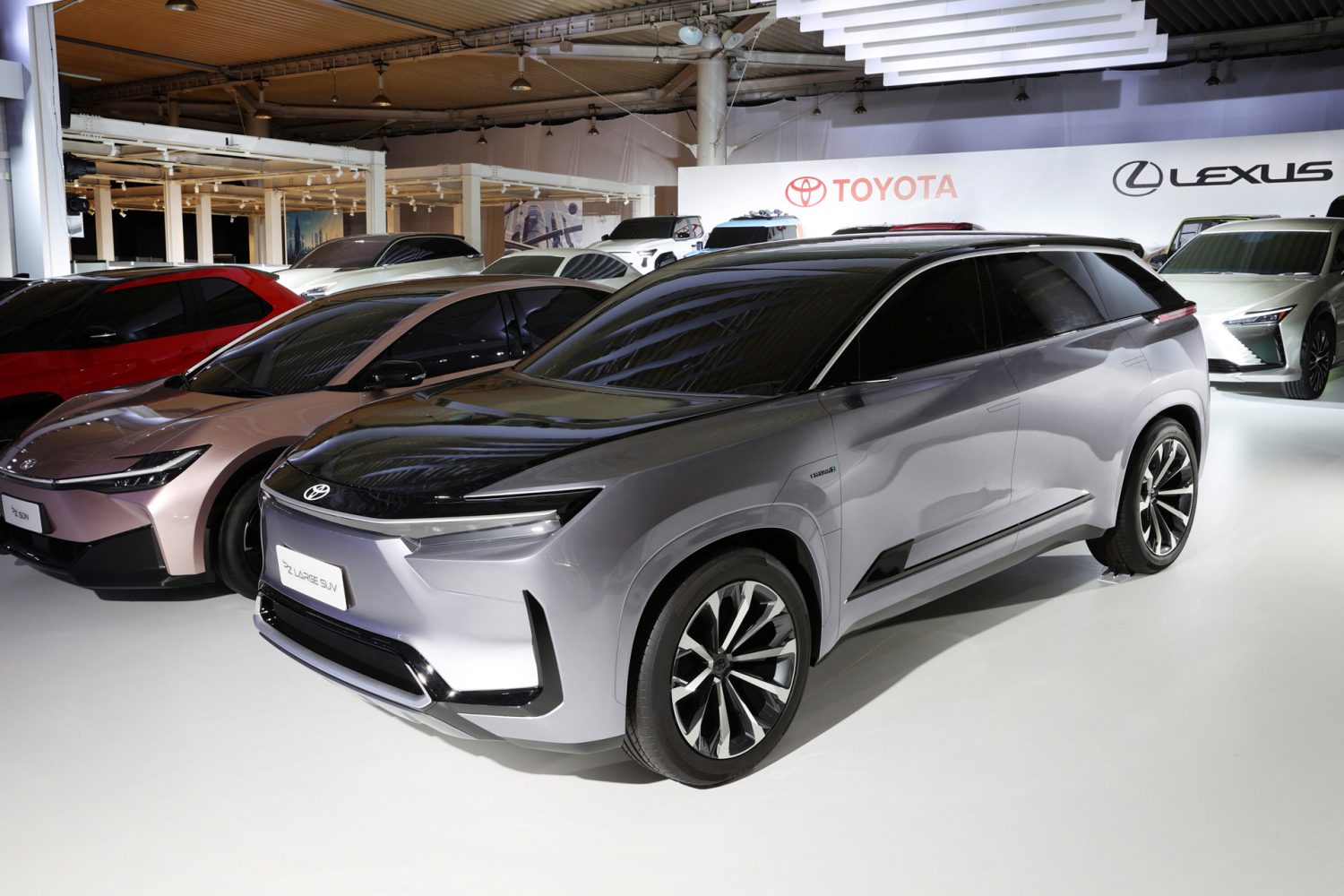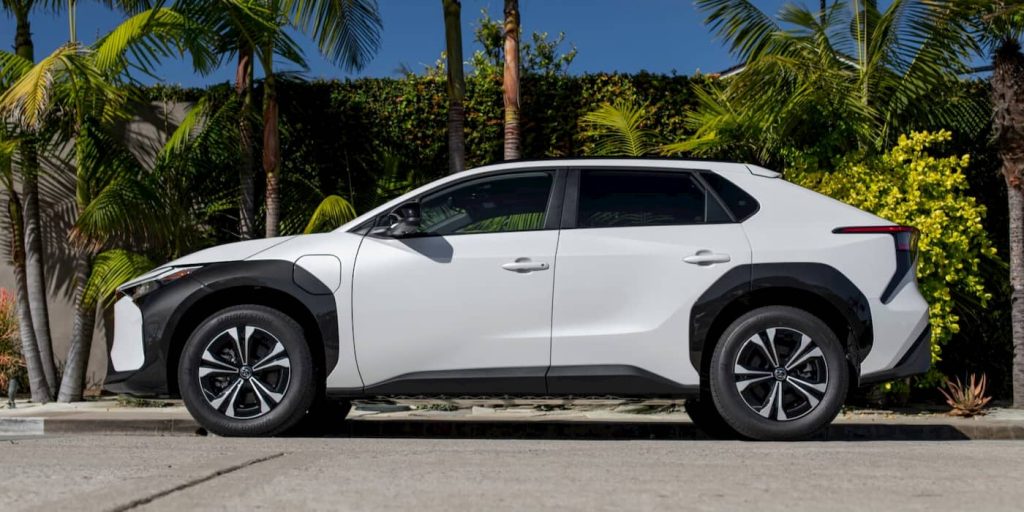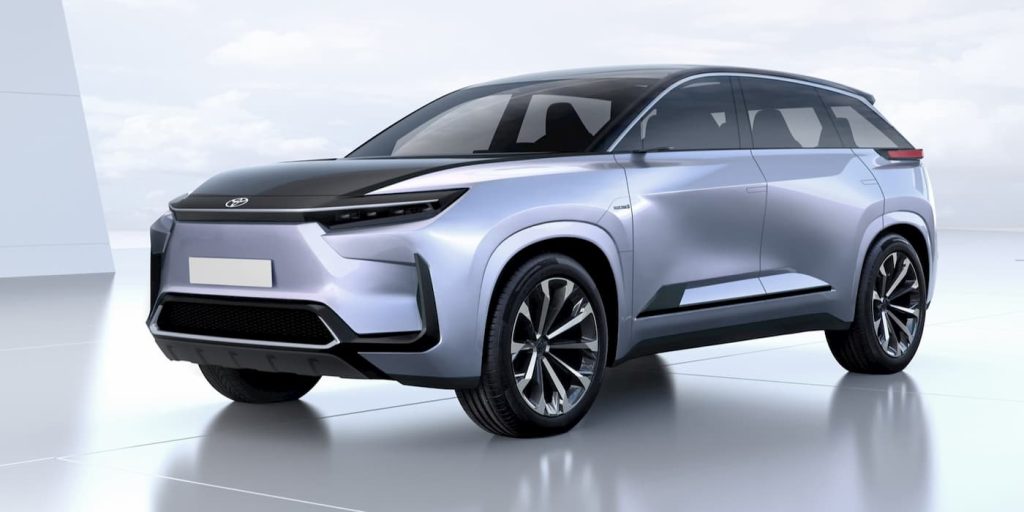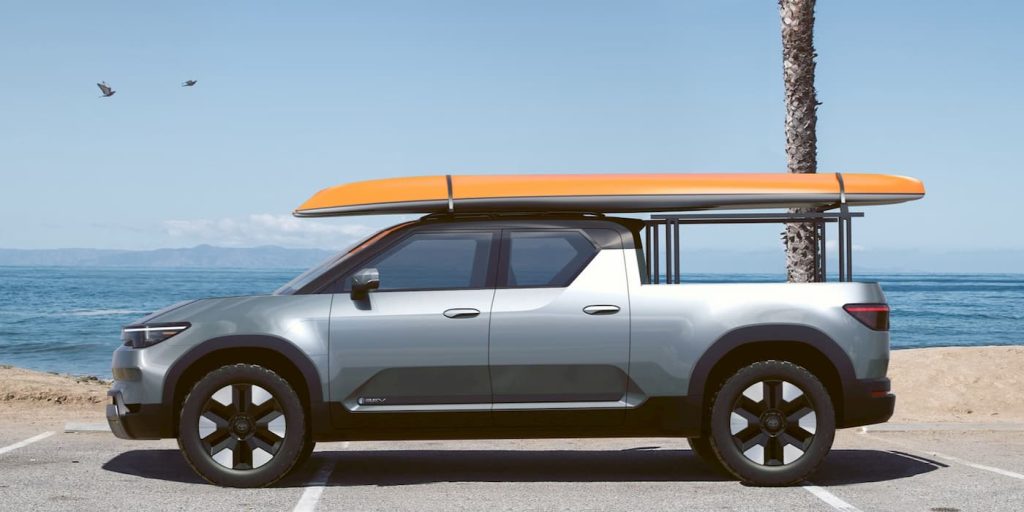
After a slow start, Toyota is looking to shake things up with its next round of electric cars. Toyota’s second best-selling SUV in the US, the Toyota Highlander, is going fully electric. It could be followed by other familiar names like the Tacoma and Tundra.
The Japanese automaker has been notoriously slow in transitioning to fully electric vehicles. As of right now, Toyota only offers two EVs in the US: the bZ4X and Lexus RZ. And that’s it for at least another two years.
Toyota, including Lexus, sold over 565,000 vehicles in the US in the first three months of 2024. Of them, only 3,500 were fully electric, or 0.6% of Toyota’s total sales.
Meanwhile, many automakers are already at double-digit or 100%, EV sales share at this point. For example, Rivian, which delivered its first vehicle in October 2021, handed over 13,588 EVs in Q1.
Despite falling behind, Toyota has stuck to its hybrid strategy, including hybrids, plug-in hybrids (PHEVs), battery electric vehicles (EVs), and fuel cell vehicles (FCEVs).
To avoid falling further behind, Toyota is promising new EVs powered by advanced batteries with new tech and manufacturing practices to cut costs and improve efficiency.

Toyota to launch electric Highlander SUV in the US
“We have always been committed to building BEVs,” David Christ, GM of Toyota’s US Division, told CarBuzz during the 2025 4Runner debut.
Christ added, “You’re going to see more BEVs from us in the future.” This will include a fully electric Toyota Highlander SUV.
Toyota revealed it would build a three-row electric SUV at its Georgetown, KY facility as its first US-assembled EV last May. In February, Toyota invested an additional $1.3 billion into the facility to prepare it for EV production.

According to CarBuzz, this will be an electric version of its popular Highlander SUV. Lexus is also set for a three-row electric SUV, which could go by the name “TZ,” according to a trademark filing.
Further out, Toyota is looking at an electric compact pickup and EV-version for its mid-size Tacoma. However, it will depend on the market.

An electric full-size Tundra pickup is also in the works, but Toyota is watching rivals like the Ford Lightning, Rivian R1T, and Tesla Cybertruck to weigh demand.
First, Toyota will expand its PHEV line-up. “We’re going to expand plug-in availability throughout the line-up fairly quickly,” Christ explained. New Toyota PHEVs could include a Sequoia SUV, Tundra, and Tacoma.
Electrek’s Take
Toyota sold over 169,500 Highlander SUVs in the US in 2023, its second best-selling SUV behind the RAV4. It only makes sense for an all-electric version.
Meanwhile, several larger electric SUVs are already climbing the sales charts in the US. Rivian’s R1S was the fourth best-selling EV in the US last year. Kia sold over 4,000 units of its first three-row electric SUV, the EV9, in Q1, which launched in December.
Top comment by Swallow_Doretti
Toyota deserves every ounce of skepticism they get around any plug-in announcement, considering their sole EV entry is a glorified compliance car. And while they tout PHEVs, the sheer lack of inventory of models like the RAV4 Prime several years after launch shows they're not serious about that technology, either. And all that is before their ongoing global lobbying against stricter emissions standards is factored in.
On the other hand, Ford is pushing back production of its larger SUV as it develops a new low-cost EV platform.
The first models are expected to be a smaller electric pickup and SUV. Due out in 2026, Ford’s new EV is expected to start at around $25,000.
By 2026, an electric Toyota Highlander may not seem so special, with so many automakers planning to launch new EVs by then (or release 2nd and 3rd gen models).
One of the biggest takeaways from the report is that Toyota may drop the “bZ” naming system and focus on popular models like the Highlander or Tundra.
FTC: We use income earning auto affiliate links. More.




Comments